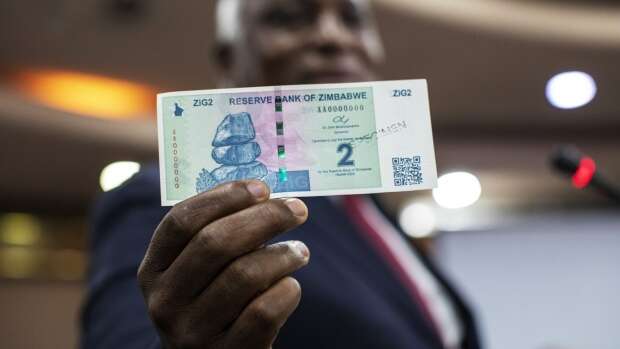IMF calls Zimbabwe switch to gold-backed ZiG an ‘important’ step
The International Monetary Fund welcomed Zimbabwe’s introduction of a new gold-backed currency as a positive step, in its first substantive comment on the ZiG since it was introduced last month.
“The introduction of ZiG represents an important policy action accompanied by several complementary policy changes — including monetary, exchange rate, and fiscal policy measures,” a spokesperson for the Washington-based lender said in an emailed response to Bloomberg questions.
ZiG, short for Zimbabwe Gold, was unveiled on April 5. It is the southern African nation’s sixth attempt in the last 15 years to establish a functioning currency after previous efforts failed amid hyperinflation and collapsing foreign exchange values.
The central bank hopes to get it right this time by promising not to print any more ZiG unless they are backed by reserves.
It’s also explicitly pledged not to finance government spending by printing money, which scuppered past versions of the local currency and has seen the economy shift predominantly to transacting in US dollars.
Since the ZiG’s launch, the central bank has reset its benchmark interest rate to 20% from 130% — at one stage the highest rate in the world — and publishes the ZiG/dollar exchange rate daily on its website.
The government has also cracked down on unofficial market trade in the unit and threatened to fine anyone not trading in the ZiG at the official exchange rate.
On Thursday, the ZiG reached its highest level against the greenback, touching 13.21 per dollar, which is 2.6% above where it began trading on April 8.
The IMF also said that it will send a team to Zimbabwe in late June for the country’s regular economic health checkup.
This “will be an opportunity to discuss and look at the performance of the new currency arrangement,” said the IMF spokesperson. Finance Minister Mthuli Ncube told Bloomberg in an interview last month that he hopes for a staff-monitored program in the second half of the year.
Zimbabwe, which was banished from international capital markets since 1999 for defaulting on its debts, is trying to restore its international standing despite qualms in western capitals about its human rights record. While the US has lifted sanctions on some state-owned firms, it’s applied them to President Emmerson Mnangagwa and other top officials.










